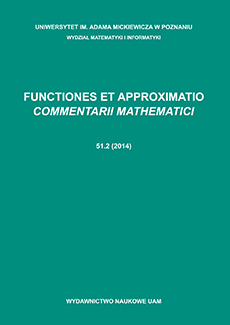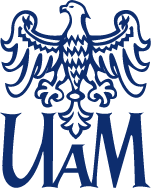Abstract
Let ${\mathcal{Q}}({\mathcal{T}})$ denote the set of integers which are composed of prime factors from a given set of primes ${\mathcal{T}}$ only. Suppose that $\mathcal{A}+\mathcal{B} \subseteq \mathcal{Q}'(\mathcal{T})$, where $\mathcal{Q}(\mathcal{T})$ and $\mathcal{Q}'(\mathcal{T})$ differ at finitely many elements only. Also assume that $\sum_{p \leq x, p \in \mathcal{T}} \frac{\log p}{p} = \tau \log x + O(1)$. We prove that $\mathcal{A}(N) \mathcal{B}(N) = O(N(\log N)^{2 \tau})$ holds. In the case $\tau \geq \frac{1}{2}$ we give an example where both $\mathcal{A}(N)$ and $\mathcal{B}(N)$ are of order of magnitude $\frac{N^\frac{1}{2}}{(\log N)^{\frac{1}{4}}}$, which shows that this is close to best possible.
Citation
Christian Elsholtz. "Additive decomposability of multiplicatively defined sets." Funct. Approx. Comment. Math. 35 61 - 77, January 2006. https://doi.org/10.7169/facm/1229442617
Information





